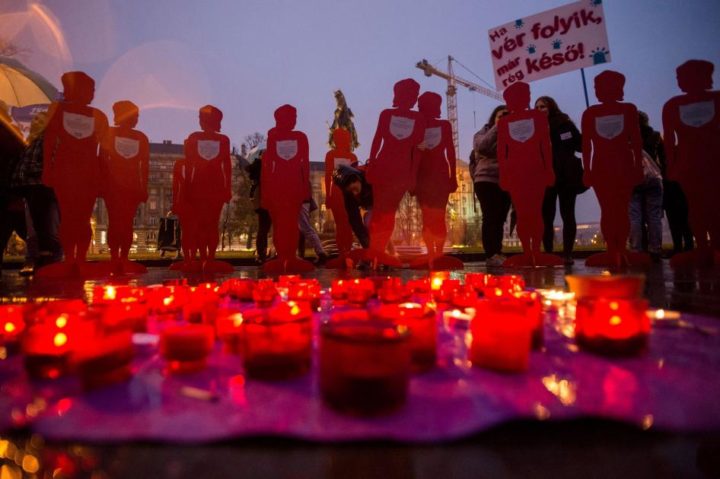Government Blocks Key Treaty as Covid-19 Exposes Scale of Domestic Abuse
Hillary Margolis
Amidst a disturbing global uptick in reports of domestic violence during Covid-19 lockdowns, Hungary has taken a leap backwards in protecting women. On May 5, parliament, where ruling party Fidesz has a two-thirds majority, blocked ratification of a regional treaty on violence against women.
The Council of Europe Convention on Combating Violence against Women and Domestic Violence, known as the Istanbul Convention, establishes a gold standard of inclusion, recognizing everyone’s right to live free from violence, regardless of sexual orientation, gender identity, immigration status, or other characteristics. It obliges state parties to uphold minimum standards for protection from and prevention and prosecution of violence against women.
But politicians in Hungary claim the convention promotes “gender ideology” – a term used to argue that gender equality undermines “traditional family values” and encourages homosexuality. They also claim the convention’s protection of migrant and refugee women contradicts Hungary’s efforts to crackdown on irregular immigration.
Hungary’s government has launched persistent attacks on gender equality and the rights of lesbian, gay, bisexual, and transgender (LGBT) people and asylum seekers and migrants – all of which feed into a broader backslide on the rule of law in the country.
Hungary’s justice minister Judit Varga argues that national laws already protect women victims of violence, but women’s groups have long lamented insufficient services and poor police response to rampant domestic violence.
This week’s political maneuvers reflect a disturbing trend: Bulgaria, Slovakia, and Latvia have similarly refused to ratify the convention, Poland has threatened to withdraw, and Slovakia has also opposed European Union accession to the convention.
Over 20 percent of women in the EU have reportedly experienced domestic violence. In many countries, over 50 percent of women murdered die at the hands of partners or family members. Reports of domestic abuse have soared across Europe during the Covid-19 pandemic. Government resources to prevent violence against women and ensure services to support and protect victims can save lives, and they can’t wait.
The European Commission President and Equalities Commissioner have both prioritized EU accession to the convention. They should speak out as member states deliberately try to derail this process and misrepresent the convention’s essential protections for women.
Instead of using inflammatory rhetoric to block needed measures, European governments should focus on keeping all women safe.






